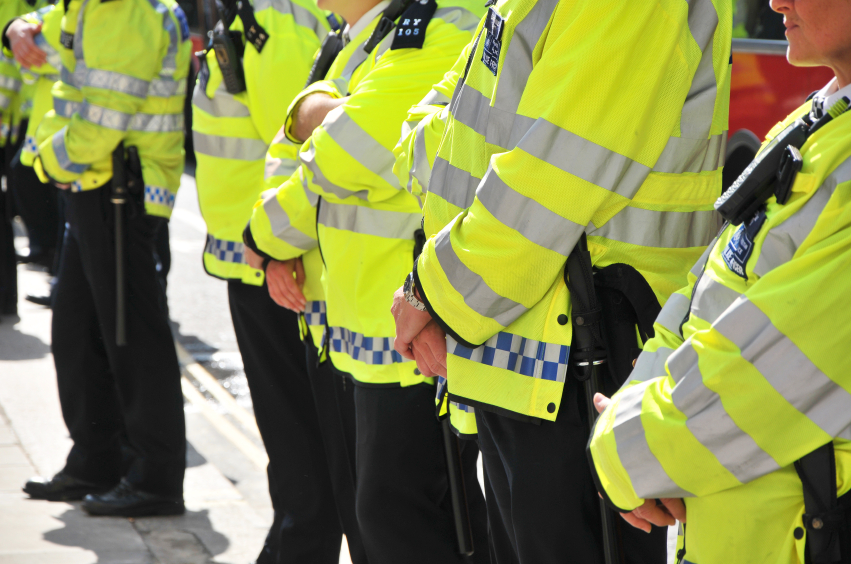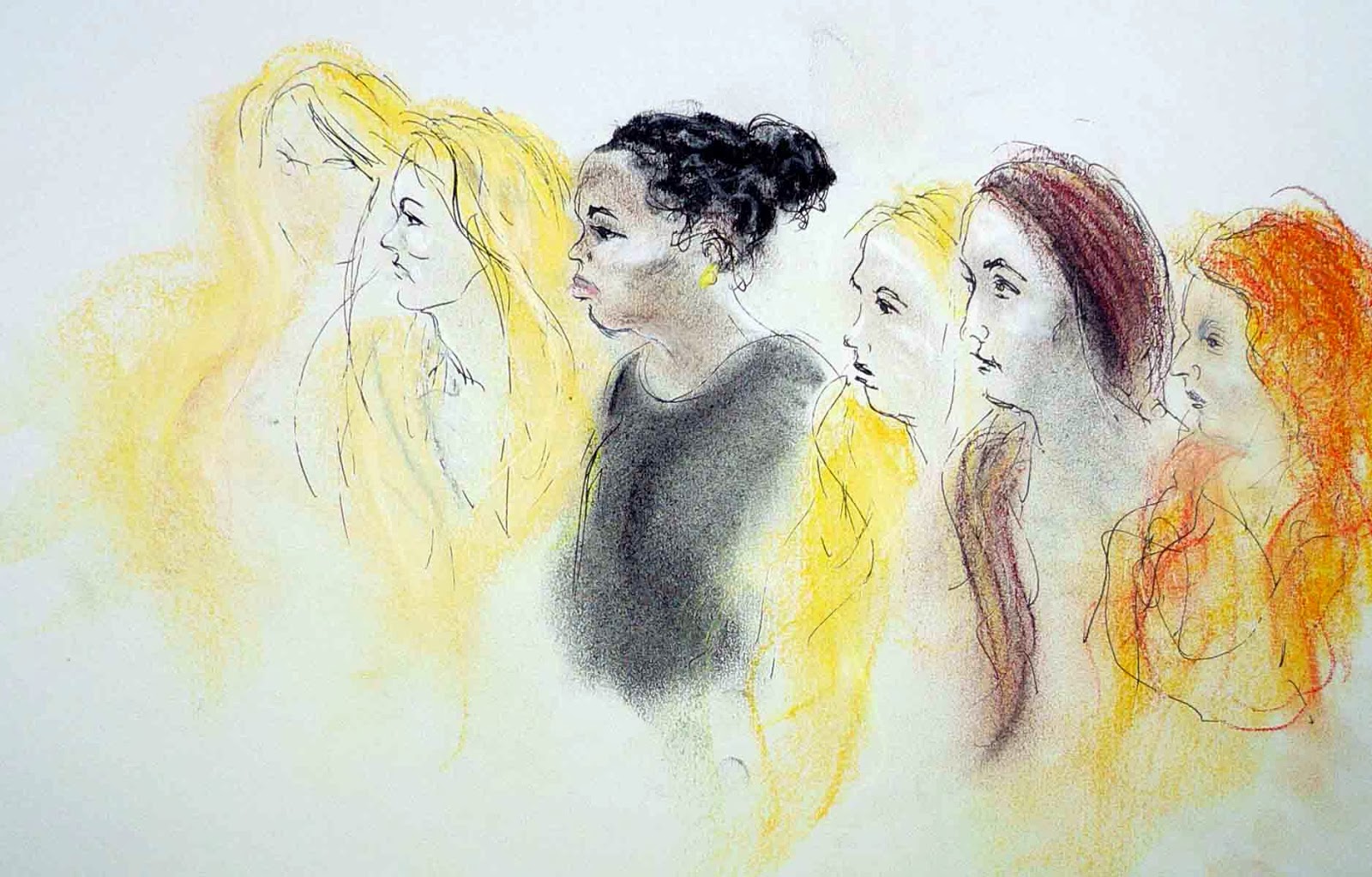The Equality and Human Rights Commission reported this week that the police were 28 times more likely to use stop-and-search powers against black people than white people.
- You can read the Stop and Search: Know your rights guide below (thanks to Tuckers Solicitors)
- You can read Jon Robins on the ‘Stop and Search App’ on the Guardian Law HERE.
- You can read Sasha Barton, of Hodge Jones & Allen, on the shocking case of Anthony Frederick who was assaulted and strip searched during wrongful arrest following a stop and search on his own property HERE. His case recently settled for £11,750.
‘It seems to me as a member of the public, I had no rights whatsoever. Whether you have something to hide or not, you are treated as a criminal. I have totally lost my faith in the police when it comes to asking for their help.’
Anthony FrederickAaron Sonson, Satwant Singh Kenth and Gregory Paczkowski, were set the challenge of designing an app that would help solve a community problem. They were on a course called Apps for Good, run by the non-profit organisation the Centre for Digital Inclusion. Some 21 problems were shortlisted but the three friends, who had all been stopped and searched a number of times, came up with the Stop and Search app.
Jon Robins
The Equality and Human Rights Commission’s Stop and Think report found that across England and Wales there were 22 stops and searches per 1,000 people in 2007/08. The black population had the highest rate of stop and search at over 110 per 1,000; the rate for Asian people was over 30 per 1,000, and it was 17 per 1,000 for white people.
If black people were stopped and searched at the same rate as white people in 2007/2008, there would have be around 25,000 stops and searches of black people. Instead, there were over 170,000.
The Equality and Human Rights Commission
The watchdog will be writing to police forces with ‘the most concerning statistics to gain a better understanding of how they are meeting their obligations under the Race Relations Act’. ‘We cannot rule out taking legal action against some police forces,’ it added.
_________________________________________
Stop and search: know your rights
If you are stopped you should record the details of the officers and what happened:
- Time and date
- Officer’s name and badge number
- Where were you stopped?
- What happened?
Thanks to Tuckers solicitors for letting us use their Stop & Search: Know your rights guide.
__________________________________________
When can the police search me?
Police officers have the power to stop, detain and search you without arresting you in a number of situations (there are different rules for stopping and searching vehicles and these are set out at the end).
Laws such as the Police and Criminal Evidence Act 1984 (PACE) and the Misuse of Drugs Act 1971 set out the circumstances when an officer can legally search you.
An officer must suspect that:
- You are in possession of a prohibited item, such as drugs, weapons or stolen goods
An officer must also have reasonable grounds for their suspicion that you have a prohibited item on you. For example, your behaviour could be taken as a sign that you are in possession of a prohibited item. See the exception for section 60 searches covered below.
An officer must not base their suspicion on your race, colour, age or the way you dress.
Where should the search take place?
PACE permits the police to search you in most public places.
If you’re searched in a public place the police can put their hands in the pockets of your outer clothing (jacket etc) and feel around inside your collar, socks and/ or shoes, if this is reasonable and necessary in the circumstances (for example if the police are searching you for drugs). The police are also allowed to search your hair in public.
What counts as a ‘public place’? The definition of a ‘public place’ in PACE is ‘any place to which [at the time of the search] the public or any section of the public has access, on payment or otherwise, as a right or by virtue of express or implied permission… Or…other place to which people have ready access [at the time of the proposed search]’
What if the police ask you to remove your clothes?
Generally the police only have the power to ask you to remove your coat, jacket or gloves in public.
If the police wish to carry out a more thorough search, such as asking you to remove (or partially remove) your jumper, t-shirt or trousers this must be done out of public view, for example in a police van or at a police station.
If the police are searching you under Criminal Justice and Public Order Act, section 60 they can also ask you to remove facial coverings (such as a scarf) if they reasonably believe you are wearing it to conceal your identity.
What about strip searches?
The police cannot conduct a search that involves exposing intimate parts of the body in a police van. This should be done by an officer of the same sex as you and should normally be at a police station.
What should the police tell you?
When you are stopped you have a right to be given certain information:
- If the police officer is not in uniform then he or she must show you proof that they are a police officer,
- The police officer’s name and police station they are from,
- The grounds for the proposed search (why they want to search you),
- The object of the search (what they are looking for),
- Information about the power to search you and your rights.
This information should be given even if you do not ask for it
Should you be given a record of the search?
When you have been searched:
The officer ‘must make a record of it at the time, unless there are exceptional circumstances which would make this wholly impracticable’.
Immediately after the search is completed you should be given either a copy of the record of the search or a receipt telling you where you can obtain a copy of the full record or access to an electronic copy.
If a record of the search is not made immediately it should be done so as soon as possible after the search and you can request a copy of it within three months.
It is always a good idea to obtain and keep a copy of the search record.
You do not need to give your name or address when being searched under PACE or section 60.
Do the police always have to have reasonable suspicion?
There are some circumstances where the police do not need to have ‘reasonable suspicion’ that you are in possession of a prohibited item.
- Section 60, Criminal Justice and Public Order act 1994: The police can designate a specific area under Section 60 for a maximum of 48 hours when they believe that there will be serious violence in that area or people carrying offensive weapons.Under these powers, the police do not need to have any suspicion that they will find anything prohibited on you. They have extra powers under section 60AA to require you to remove any facial coverings (such as a scarf).
You should be told if you are being searched under section 60.
What if you are driving and the police stop you?
If you are driving, a police officer in uniform can order you to stop at any time without giving reasons. It is a criminal offence not to stop.
The police also have the power to require that you provide them with documents (such as a licence and insurance) and to ask the name and address of the driver
If the police wish to search your car they have to have reasonable grounds to suspect that they will find stolen or prohibited articles.
What happens if you get arrested?
If you are arrested you should be taken to a police station.
You have the right to free and independent legal advice.
Always ask to speak with a solicitor before answering any questions
If you are under 17 years old you should not be interviewed without an appropriate adult (this should be someone in addition to your solicitor).








